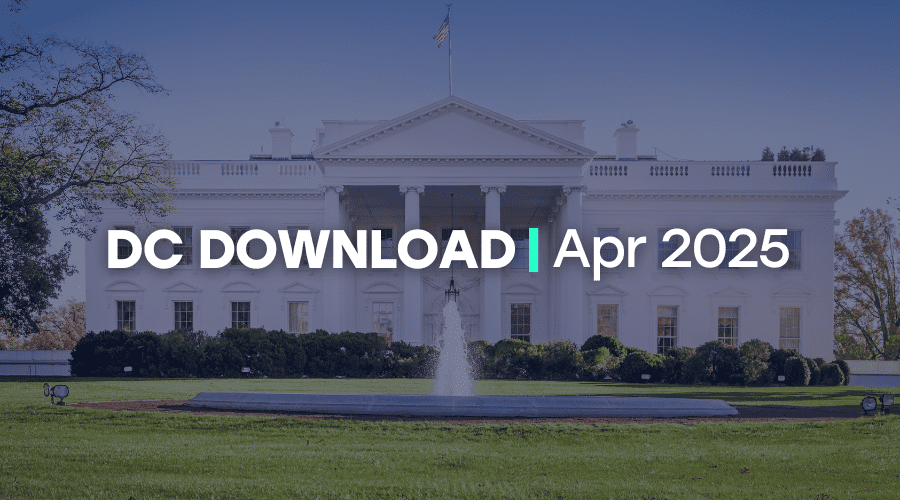It is officially budget season on Capitol Hill, with the arrival of the president’s budget proposal and the appropriations process beginning in earnest. Congressional committees are also running at a particularly frenetic pace this month, perhaps due to time lost during the government shutdown. So please be extra kind to the congressional staff in your life over the next few weeks! That said, the budget process is just one of several things in motion going into April that impacts the nonprofit sector. Here is what you need to know about that and all the other major federal policy updates that may impact your work in the coming month.
President’s Budget Proposal Sent to Congress
On March 11, the White House released much of President Trump’s Fiscal Year 2020 budget proposal—A Budget for a Better America— with other key supporting materials released a week later. The budget would allow a scheduled reduction of approximately $55 billion in nondefense discretionary funding (NDD) to go into effect, while sparing the Department of Defense from similarly large spending cuts. Despite predicting strong economic growth for the next decade, the White House predicts that the federal budget deficit will top $1 trillion for each of the next four years. In this context of constrained resources, the budget also proposes the elimination of a wide range of federal programs important to the nonprofit community. See more details in our summary.
Unrelated Business Income Tax (UBIT)
Earlier this month, Senator James Lankford (R-OK), Senator Chris Coons (D-DE), Representative Mark Walker (R-NC), and Representative Tom Suozzi (D-NY) introduced legislation that would repeal the tax on transportation fringe benefits created by the 2017 tax bill. Research indicates this tax will divert nearly $12,000 away from the average nonprofit organization’s mission. In a press release announcing the legislation, Independent Sector President and CEO Dan Cardinali noted, “The LIFT for Charities Act is a welcome recognition that this burden is unacceptable, and we urge Congress to act on it swiftly.”
You can join us in asking Congress to support #MissionNotTaxes by taking two minutes to contact them through our Action Center.
Overtime Regulations Updates Proposed
The U.S. Department of Labor has issued a proposed rule to update the salary level at which employees may be exempt from overtime requirements under the Fair Labor Standards Act. This proposal would boost the standard salary level from $455 per week to $679 per week (equivalent to $35,308 per year). Above this salary level, eligibility for overtime varies based on job duties. The proposal would also update the salary level for “highly compensated employees” but would not index either salary level to inflation and does not contain any adjustments to the duties test. You can access more information about the proposed rule and submit comments in the rulemaking docket RIN 1235-AA20 through May 21, 2019.
The Obama Administration proposed increasing the standard salary level to $913 per week (equivalent to $47,476 per year) in 2016, but the changes were ultimately struck down in court. Independent Sector’s comments on the original proposal urged a phased-in implementation and revision of the terms of federal grants and contracts with nonprofit organizations. If you are unsure how overtime rules impact you, the Department issued guidance for nonprofit organizations in 2016 that may help, although please note that the dollar amounts listed are now outdated.
Charitable Giving Legislation Adds Cosponsors
Representatives Chris Smith (R-NJ) and Henry Cuellar (D-TX) continue to add cosponsors to H.R. 651, which would create a universal charitable deduction that is available to all taxpayers whether they itemize their taxes or not. They are now joined on this bill by five Democrats and six Republicans. Join us in asking your Representative to cosponsor this bill today!
Public Service Loan Forgiveness
Senators Kirsten Gillibrand (D-NY) and Tim Kaine (D-VA) have announced their intention to introduce legislation that will update and expand the Public Service Loan Forgiveness program. The What You Can Do for Your Country Act—which had not yet been introduced at press time—would allow all types of federal student loans to qualify, as well as borrowers in any type of repayment plan. The bill would also allow partial loan forgiveness after five years of service and direct the Department of Education to provide borrowers with more up-front information and a simplified application process.



